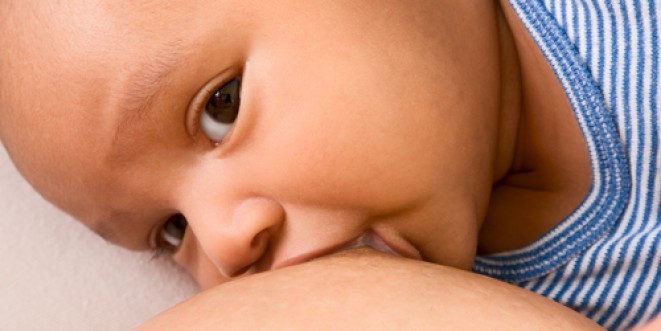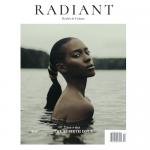Radiant News Digest: Is Breastfeeding the Only Option?
By Radiant HealthPublished: July 5, 2016

Is Breastfeeding the Only Option?
We don’t need to rehash the high maternal and infant mortality rates in Nigeria. We need action. One way to prevent infant deaths is through proper nutrition of both mother and baby, but that’s not always easy. And, it’s one of the reasons that Aisha Buhari, wife of the president, made her views known alongside those of Isaac Adewole at the launch of the 2016 Lancet Series of Breastfeeding and High Level Policy Dialogue on Promoting Breastfeeding for National Development in Nigeria.
Sure, the name of the meeting is complex, but the principles behind breastfeeding are simple. Babies that are breastfed tend to be healthier, combat diseases better, perform academically, and generally receive a better start in life. And, the World Health Organisation has released information stating that it’s safe for HIV-positive mothers to breastfeed their babies (though there are protocols to follow if doing so).
***
Will Government Action Forestall Another Strike?
On Saturday 25 June 2016, the National Association of Resident Doctors (NARD) stepped down from the hard-line stance of their strike. Presumably, this was in response to the government’s call to fire any doctor that didn’t report for work. But, it may have something to do with negotiations between NARD and the government.
As it stands, the government has until 14 July to ensure that they adhere to the settlement reached. If they don’t, it could mean ever bigger problems for the government. Many of the doctors haven’t been paid in months, and it doesn’t bode well for Nigeria if the most experienced aren’t working or are sacked for demanding their salaries. Clearly, it’s time for the federal government to allocate more than four percent of the budget to health care.
***
Natural Black Hair Is Beautiful Too
Black women have a relationship with their hair that may be difficult for others to understand. The complex styling and braiding emerged from years of colonisation and the desire to keep hair in order. Of course, the amount of work that goes into black hair around the world is detrimental to the scalp – and the self-image of young black women.
And yet, it’s difficult to image the state of black styles changing anytime soon. Earlier this year, girls in the Bahamas were suspended from school for wearing their hair au naturel; the administration deemed them unkempt. (And, yes, this is an overwhelmingly black country.) And, in Burkina Faso, it’s basically impossible to appear “beautiful” without braids. Want to change perceptions? Follow #SupportthePuff on Twitter to see how beautiful natural black hair can be.
***
Sanitizers Aren’t a Substitute for Soap
Hand sanitizers have become immensely popular in the past decade. They’re absolutely fantastic for tucking into your handbag when you know there’s no chance of clean running water. And, they’re distributed by aid organisations in cases of health emergencies. But, they’re no substitute to washing your hands with soap and warm water; they may even be dangerous to use when pregnant.
The Food and Drug Administration (FDA) in the United States has called for more information to determine whether these products are as safe as possible – and whether it’s possible that their use has contributed to the rise in “super bugs”. The FDA has not issued orders to recall these products, but you may want to play it safe and use soap and water rather than sanitizer when the option is available.
***
US Military to Increase Nigerian Health Care Capacity
You’d be hard-pressed to find an African country without some form of US military presence – or ability to respond relatively quickly to emergencies. They may not be marching through the streets, but they’re there. And when the local population is at risk of disease, so are the US troops (even if they travel with their own doctors to treat them).
So, it shouldn’t be that much of a surprise that the United States Department of Defense (USDD) plans to partner with the Nigerian military to develop bio-surveillance and response capacity. To do so, they’ll be bringing in additional laboratory and medical supplies. While this doesn’t appear to affect ordinary Nigerians, just think what the added resources could do in the face of highly-infectious deathly diseases such as Ebola.
Like what you're reading? Sign up for our free newsletter and never miss a post! Plus get a FREE digital version of our Issue No.10 with sign up.

- 11 Best Health and Wellness Books to Read in 2024 - July 4, 2024
- Some Americans Will Have Medical Debt Wiped From Credit - July 9, 2022
- Natural Gas Used to Heat Homes Contains Some Harmful Chemicals - July 9, 2022
- Uterine Cancer Claims Many Black Lives - July 9, 2022
- Babies and Toddlers Get COVID-19 Shots - June 27, 2022
- FDA Bans Juul’s E-Cigarettes and Cartridges - June 27, 2022
- Polio Virus Found in London Sewage - June 27, 2022
- 200 Million Americans Are Drinking Contaminated Water - June 19, 2022
- Young Kids Can Finally Get Vaccinated Against COVID-19 - June 19, 2022
- New Regulations for Baby Sleep Products - June 19, 2022











